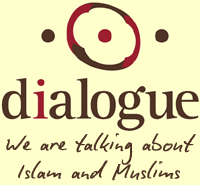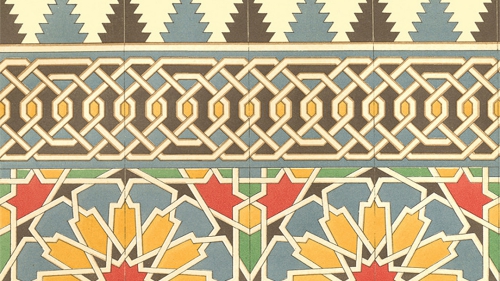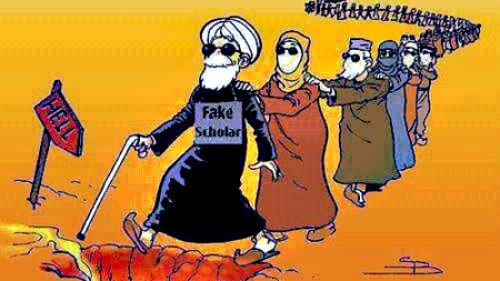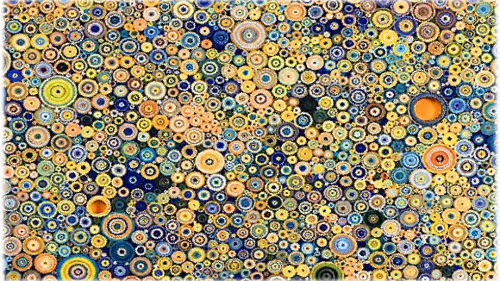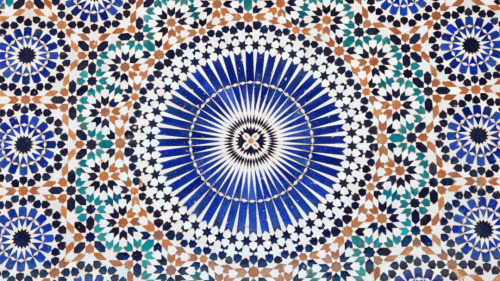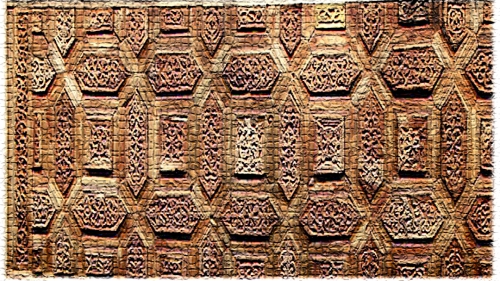Online Dialogue with Muslim leaders from around the world
Washingtonpost and Newsweek Interactive announced today that about twenty leading Muslim clerics and thinkers from around the globe will participate in an unprecedented six-day online dialogue about their religion, as well as terrorism and human rights on the joint washingtonpost.com and Newsweek blog "On Faith," which explores the intersection of religion and culture. The event, "Muslims Speak Out," is being presented in conjunction with Georgetown University and will run from Sunday, July 22 through Friday, July 27.
The Washington Post's Sally Quinn-moderator of On Faith with Newsweek editor Jon Meacham-said that "Muslims Speak Out" marks the first time a major American news outlet has brought together so many Muslim leaders to ask their views on hot-button topics. "Muslim leaders say that the media doesn't listen to their views, or represent them accurately," Quinn explained. "This is an opportunity for these well-known men and women to speak in an open forum, and to educate people everywhere about their faith and its relevance in today's world."
The Washington Post Company will coordinate across its national media outlets to cover this critically important topic, each featuring unique stories and reporting. On Sunday, July 22, The Washington Post's Outlook section will run a series of articles about Islam and its religious tenets; the issue of Newsweek on newsstands on Monday, July 23, will feature this as its cover story; and the entire week of July 22 the online magazine Slate.com will cover the topic through text and photography features. Post/Newsweek television stations across the country will also participate in the event, and content from On Faith will also run in newspapers around the world that are part of The Independent Media Group.
Participants in the online discussion include representatives from all points in the political spectrum, discussing provocative issues of importance to Muslims and non-Muslims alike. The questions each will address in "Muslims Speak Out" include:
-
What would you tell suicide bombers who invoke Islam to justify their actions?
-
What are the rights of women is Islam?
-
Is it permissible for a Muslim to convert to another faith?
-
Does Islam's view of male-female equality differ from the Western view?
-
Under what conditions does Islam sanction the use of violence?
-
How can laws against apostasy be reconciled with the Koranic injunction of "no compulsion in religion"?
All of the panel's participants will also be able to respond to comments and questions left by readers, creating a dialogue and a bridge to mutual understanding.
On Faith's "Muslims Speak Out" will include additional original content that further explores Muslim religion and culture for the six-day event. These companion pieces will not only offer other perspectives on Muslims and Islam in our world today, but bring other voices and experiences to this multi-faceted interactive discussion. Scheduled to contribute pieces are President Jimmy Carter; former British Prime Minister Tony Blair; former South African leader Nelson Mandela; Congressman Keith Ellison (the only Muslim member of Congress); University of Chicago professor Martin Marty; Georgetown University President John J. DeGioia; and John L. Esposito, Dr. Akbar Ahmed, Rabbi Bruce Lustig, and Bishop John Chane who will discuss together the relationship between Muslims, Jews, and Christians. The results of a Pew Forum survey of opinion polls in Muslim countries on the issues being discussed in Muslims Speak Out will be featured one day, and on another an essay on what key Islamic texts say about violence (penned by a Georgetown University scholar) will run on the blog.
Among the best-known prominent Muslim thinkers and religious leaders expected to take part in this event:
Grand Ayatollah Sayyed Muhammad Hussein Fadlallah, one of the leading Shi'ite Muslim religious authorities in the Islamic world, known in the West as a former spiritual adviser to the Lebanese Shi'ite resistance movement, Hezbollah; Tariq Ramadan, professor of Islamic Studies and senior research fellow at Oxford University. Selected by Time magazine as one of the world's top 100 thinkers and scientists in 2005, Ramadan relinquished his appointment to a tenured professorship at Notre Dame University in 2004 after the U.S. government revoked his visa; Sheikh Ali Gomaa, the Muft of Egypt and a leading Sunni Muslim religious authority; Dr. Mustafa Ceric, Grand Mufti of Bosnia; and Sheikh Rashid Rashid al-Ghannoushi, the Muslim intellectual and exiled leader of Tunisia's Islamist opposition movement who is widely considered an Islamic radical in his native country.
A full list of participants is listed below.
On Faith is an interactive conversation on religion moderated by Newsweek Editor Jon Meacham and Sally Quinn of The Washington Post. It is produced jointly by Newsweek and Washingtonpost.com.
Click Below to Join the Dialogue
http://newsweek.washingtonpost.com/onfaith/
-
Muzammil H. Siddiqi, Chairman of Fiqh Council of North America. Lives in California.
Originally from India, Muzzamil Siddiqi holds degrees from institutions of higher education in India, Saudi Arabia, the United Kingdom, and Harvard University in the Untied States. Throughout his career, Dr. Siddiqi has worked with a number of prominent Islamic organizations including the Muslim Students Association, the Islamic Center of Washington, and the Islamic Center of North America, where he recently ended a term as President of the organization. Currently, Dr. Siddiqi serves as Chairman of the Fiqh Council of North America, a body tasked with interpreting religious law throughout the continent. Dr. Siddiqi has been involved in a number of inter-faith initiatives, including participation in an inter-faith prayer service with President George W. Bush. In 1999, Dr. Siddiqi received the Humanitarian of the Year Award from the Council of Christians and Jews for his role in promoting dialogue between the faiths. He is the author of several books and scholarly articles on Islam. -
Sheikh Rashid Rashid al-Ghannoushi, exiled leader of Tunisia's Islamist opposition movement. Lives in London.
A prolific writer and leader of Tunisia's exiled Islamic movement en-Nahda (Renaissance Party), Sheikh Ghannoushi is widely considered to be an Islamic radical in his native Tunisia, where he was sentenced to life for his alleged collaboration in an Iran-backed plot to overthrow the government. After the Tunisian government granted him amnesty in 1988, Sheikh Ghannoushi moved into exile in London where he currently sits on the Fiqh Council of Europe under Yusuf al-Qawadari. A graduate of Syria's Damascus University, Sheikh Ghannoushi's academic writings have covered various topics in political Islam, including the need for reconciliation between Islam and democracy. Sheik Ghannoushi has also written extensively on the crossroads between Islam and the West. -
Sayyed Mohammed Rida Al-Musawi Al-Ghurayfi.
Islamic scholar and academic. Holds BA in law from University of Baghdad. Lecture in the traditional theological institute, Najaf. Was nominated for two years by the Grand Ayatollah Sistani to be in charge of the shrine of Imam Ali in Najaf. Was a member of the first transitional assembly in Iraq (2004). He has published many books. -
Taha Jabir Alalwani, Iraqi-born scholar and former chairman of Fiqh Council of North America.
Dr. Taha Jabir al-Alwani is currently the President of Cordoba University in Ashburn, Virginia, where he also serves as the Imam Al-Shafi'i Chair in Islamic Legal Theory at The Graduate School of Islamic and Social Sciences. As an Islamic institute of higher education, Cordoba University strives to "give students the tools needed to begin to meet the challenges of the modern world while taking students through an in-depth exploration of the Quran." Though born in Iraq, Dr. al-Alwani spent the majority of his academic career at al-Azhar University in Cairo, where he received three degrees in Islamic Law. After spending nearly a decade teaching Islamic Law in Imam Muhammad ibn Saud University in Saudi Arabia, he came to the United States, where he served as Chairman of the Fiqh Council of North America and President of the International Institute of Islamic Thought in Herndon, Virginia. He has written numerous publications on Islamic Law and Social Science with a particular focus on the "social implications of Islamic Law." -
Sayyed Muhammad Husayn Fadlallah, prominent Shi'ite Lebanese religious leader.
Grand Ayatollah Sayyed Fadlallah is the leading Shi'ite Muslim Intellectual in Lebanon. A controversial figure known primarily for his support of the armed Shi'ite resistance movement, Hezbollah, Fadlallah has also taken an uncompromising stance against the State of Israel and Americans supporting the existence of the Jewish state. For many Lebanese, Fadlallah is also known for a number of charitable works undertaken through his Mabarat Association, which provides basic social services including health care and education. In addition to a number of literary works, Fadlallah has given a number of speeches articulating the need for greater equality among the genders and various sects of Islam. -
Sheikh Ali Gomaa, Grand Mufti of Egypt.
Since 2003, Dr. Ali Gomaa has served as the Grand Mufti of the Arab Republic of Egypt, a position of religious authority second only to the Sheikh al-Azhar. As one of Islam's most respected scholars of Islamic law, Dr. Ali Gomaa oversees Dar al-Ifta, Egypt's highest body for delivering opinions on religious law. Prior to his appointment as Grand Mufti, Dr. Gomaa served as a Professor of Jurisprudence at al-Azhar University, where he specialized in usul al-fiqh, the science of religious law. There, he published over 25 books on various topics in Islam. In addition to regular media appearances on Egyptian television, the Grand Mufti has been especially vocal in reaching out to non-Muslim media outlets as a means of promoting Islamic institutions in the non-Muslim world. He has also issued a number fatwas during his tenure on topics ranging from gender equality to democracy. -
Tariq Ramadan, prominent European Muslim intellectual.
Tariq Ramadan, a fellow at St. Antony's College, Oxford, is one of the world's leading Muslim intellectuals. A Swiss citizen of Egyptian descent, he advocates a self-confident Islam that both engages and critiques Western ideas and institutions. For Time he is one of 100 "innovators" of the 21st century and "the leading Islamic thinker among Europe 's second- and third-generation Muslim immigrants." Since July 2004 Tariq Ramadan has been unable to enter the United States. Shortly before he was to assume a professorship at Notre Dame University, Ramadan's visa was revoked under the "ideological exclusion" provision of the Patriot Act. The visa denial is the subject of an ongoing legal challenge brought by the American Civil Liberties Union on behalf of the American Academy of Religion, the American Association of University Professors, and PEN American Center. -
Grand Mufti of Bosnia Mustafa Ceric.
Dr. Mustafa Ceric has served as the Grand Mufti of Bosnia since 1999. The recipient of numerous international awards for his work on interfaith dialogue, the Grand Mufti has received global acclaim for his work in strengthening democracy and promoting world peace. Dr. Ceric attended al-Azhar University in Cairo and obtained a PhD from the University of Chicago. While living in the United States, Dr. Ceric served as Imam for the Islamic Cultural Center in Northbrook, Illinois, where he worked to promote the spread of Islam in America. The Grand Mufti currently sits on Council of 100 Leaders for the World Economic Forum and various other interfaith councils throughout Europe and the Middle East. He is also a member of the European Council on Fatwa and Research under Yusuf al-Qaradawi. -
Chandra Muzaffar, Malaysian political scientist who is the president of an international NGO, the International Movement for a Just World (JUST). He is also Professor of Global Studies at the Science University of Malaysia (USM) in Penang.
Dr. Chandra Muzaffar is the President of the International Movement for a Just World (JUST), a human rights advocacy organization in Malaysia that "seeks to raise public consciousness on the moral and intellectual basis of global justice." A political scientist, Dr. Muzaffar's works have focused largely on the issues of civilizational dialogue and the crossroads between religion and human rights. Prior to his work with JUST, Dr. Muzaffar served as the first director of the Centre for Civilisational Dialogue at the University of Malaysia. In the late 1970s he was also the founder of the National Consciousness Movement in Malaysia. Having written 18 books and hundreds of journal articles on Malaysian politics and international relations, Dr. Muzaffar most recently published Human Rights & the New World Order and Muslims, Dialogue, Terror. -
Khalid al Dakhil, Professor of history at King Saud University who has publicly called for equal rights for Shi'ites.
An Assistant Professor of Political Science at King Saud University in Saudi Arabia, Dr. Khalid al-Dakhil has spent his academic career focusing on issues of democracy and reform in Saudi Arabian politics. His work has focused on the need to redefine the history of the nation and, specifically, scrutinize the role of Wahhabism as the root of clerical power in the Kingdom. Having received his Doctorate from the University of California-Los Angeles, Dr. Al-Dakhil recently returned to the United States once again as a Visiting Scholar at the Carnegie Endowment for International Peace. Dr. al-Dakhil is also a regular columnist for al-Ittihad, an Arabic newspaper in the Untied Arab Emirates. -
Ahmad Turkistani, Professor at Al Imam University Riyadh.
A Professor of Communications at The Al-Imam Muhammad bin Saud Islamic University, Dr. Ahmad Turkistani is a Saudi diplomat formerly charged with heading the Institute for Islamic and Arabic Sciences in Fairfax, Virginia. The institute is a non-profit educational institution affiliated with Al-Imam Muhammad bin Saud Islamic University in Saudi Arabia. Turkistani has demonstrated his commitment to interfaith dialogue as director of the Institute and as a Saudi diplomat, noting that dialogue is a "two-way street." He has also suggested that the Saudi government could increase its legitimacy by empowering moderates within the Kingdom. Dr. Turkistani has written extensively on issues related to Islam and Islamic Law. -
Abdullah Al Tayer, Saudi TV host.
-
Abdullah al Askar, professor of history at King Saud University and translator of a number of works from English into Arabic.
Abduallah al-Askar is a Professor of History at King Saud University in Riyadh, Saudi Arabia. He received his PhD at the University of California, Los Angeles. His studies and publications focus strongly on the social transformations of the Saudi people, including Al-Yamama in the Early Islamic Era, which tracks the early political and geographic development of the Saudi Peninsula. Dr. Al-Askar has participated in a number of international conferences geared towards improving dialogue between the Arab and Western worlds, most recently taking part in the US-Islamic World Forum in Doha. -
Humera Khan, activist and founder of Q magazine for Muslims in London.
A British Muslim of Pakistani descent, Humera Khan co-founded the An-Nisa Society, a Muslim family association operating in Britain. As an activist for women's issues, Humera has often been featured in the media as a moderate Muslim voice on issues ranging from sexual health to faith. Humera has been chosen to serve on various interfaith working groups affecting the Muslim community, including the post-7/7 Preventing Extremism Together taskforce. Khan also helped create Q News Magazine, "Britain's leading Muslim magazine, providing outside-the-box analysis of current affairs, culture, ideas and spirituality." She remains a Contributing Editor. -
Dheya Mosawi, Bahraini cleric and newspaper columnist.
A leading Bahraini cleric and rising political figure, Sheikh Sayed Dheya al-Mosawi has stood out as an advocate for religious tolerance and ending Islamic extremism. His regular columns in Bahrain's leading al-Watan newspaper have made Sheikh Mosawi one of the leading moderate Islamic voices throughout the country. The Bahrain Confidential writes that his "frank words on social issues and government policies...have made him a household name in Bahrain." Sheikh Mosawi has used his influence to advocate for a number of progressive issues in Bahrain, including issues of gender equality and poverty in the nation. -
Abdal Hakim Murad, Imam of the Cambridge Mosque and Director, Muslim Academic Trust.
A graduate of Cambridge University in 1983, Imam Abdul-Hakim Murad would later return to his alma mater to serve as the Sheikh Zayed Lecturer in Islamic Studies and Director of the Sunna Project at Cambridge's Centre for Middle Eastern Studies. Today, he is also Imam of the Cambridge Mosque and Director of the Muslim Academic Trust. A British native and convert to Islam, Sheikh Murad has studied at al-Azhar University in Cairo and in Jeddah. He is a prolific translator of Islamic works, including those of prominent Sufi theologian al-Ghazali. He is also a frequent contributor to the modern Islamic press, and has written extensively on the Islamic extremism and Islamic Ethics. -
Sheikh Al Habib Ali Jifri, Sufi-influenced Sheik, founder of Tabah Foundation in United Arab Emirates.
Sheikh Habib Ali al-Jifri traces his lineage to Imam Hussein, grandson of the Prophet. Born in Yemen, Habib Ali studied Islamic jurisprudence from local scholars in the Hadramawt. He would later found the Tabah Foundation for Islamic Studies and Research in the United Arab Emirates, an institution promoting the study of traditional Islamic sciences. Habib Ali has given numerous speeches espousing the need for tolerant and moderate discourse in Islam.
Related Suggestions
What is this dialouge supposed to do? We have been dialouging forever, still Islamophobia continues to be growing. Whenever I read about the speakers, I immediately asked, what about Siiaja Wahaj of Al Taqwa of the New York. Next, I thought of the brother Quick who is very knowledgeable about Islam. Of course, they want some watered down brothers and sisters speaking. Even Hamza Yusef would be a good speaker.
I to am not trying to trot on anyones parade, but I would like to see some knowledgable well balanced Muslim speakers for a change.
HOWEVER!!
It seems the Western media is doing something not for the reason of truly understanding Islam but to throw the cat amongst the pigeons so to speak. This is evident by questions asked regarding women's rights, terrorism, suicide bombing, etc. Terrorism for one is strictly a political issue which has nothing to do with Islam. It is true Muslims use Islam for their political aims but this is common in all quarters and Muslims have always needed to look inwardly not only post 911.
What I would have liked to have seen is an admission that Western/US meddling in the Middle East and Islamic countries over the last 100 years has produced what we see today. How do the Muslims see this? and what do they suggest to create a better understanding of East/West? and thus create a lasting peace? This is the core issue that is being avoided by Western media and their leaders. They never admit to their wrongs and continue to pump billions into a war that was based upon lies. The blood of the innocent is being spelt with no remorse or apology. Not one Western leader speaks against this war and if they do then it is very watered down and diplomatically dressed as to cause no offence to their comrades. At best it is for cutting their own losses short and not for causing mayhem and bloodshed that is ensuing.
Now can we talk about such issues?
To add insult to injury they try cover up their own barbarism yet paint any Muslim as a terrorist even when evidence proves otherwise. These two articles are the tip of an iceberg.
http://www.informationclearinghouse.info/article18050.htm
http://www.wsws.org/articles/2007/jul2007/hane-j20.shtml
If they want to know about Islam then pick up the Quran and read with an open heart. This applies to Muslims too. When both parties look at their own faults then we can see some peace.
THIS IS JUST ANOTHER PLOY TO GIVE A CONFUSE AND BAD PICTURE OF ISLAM, BUT YOU WILL NEVER WIN, BECAUSE ALLAH DOES NOT NEED MUSLIMS FOR VICTORY, HE JUST SAYS BE AND IT IS.






